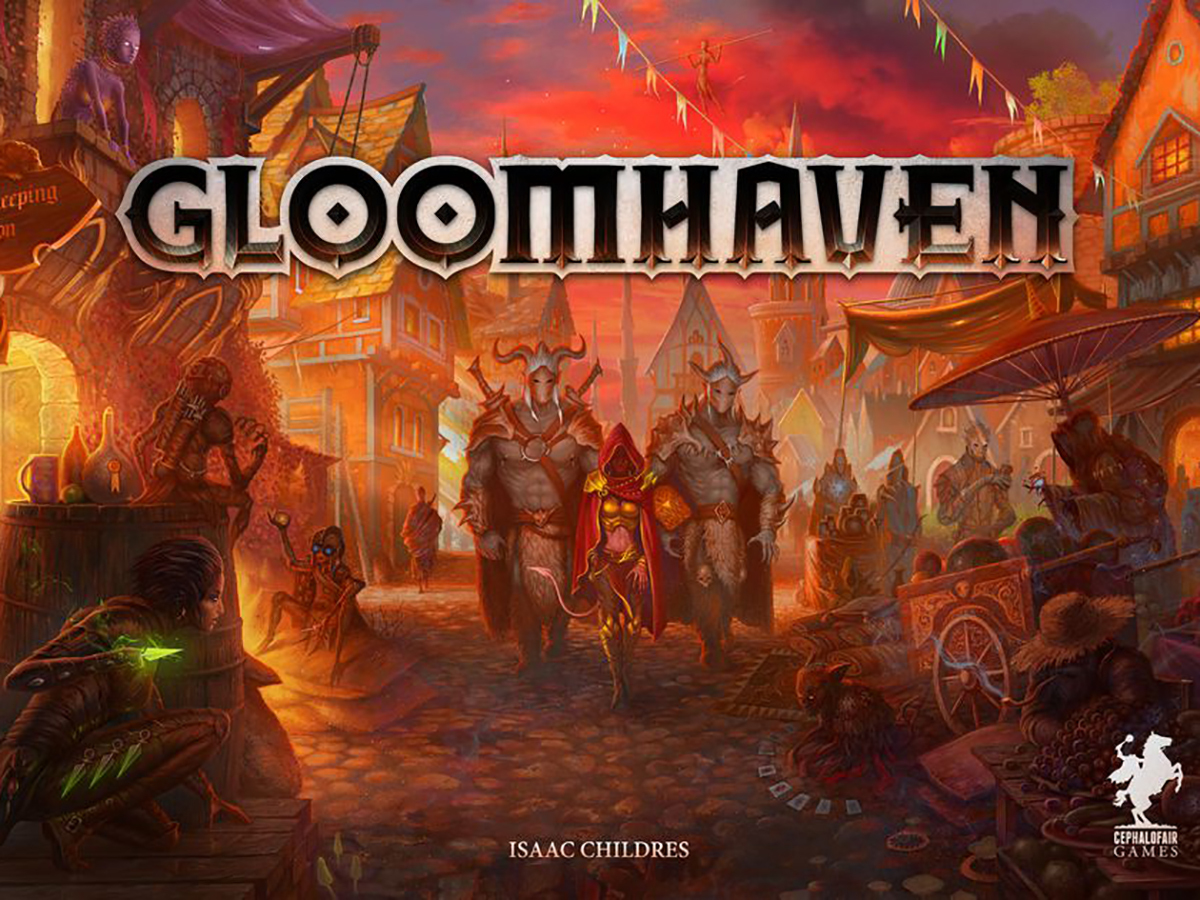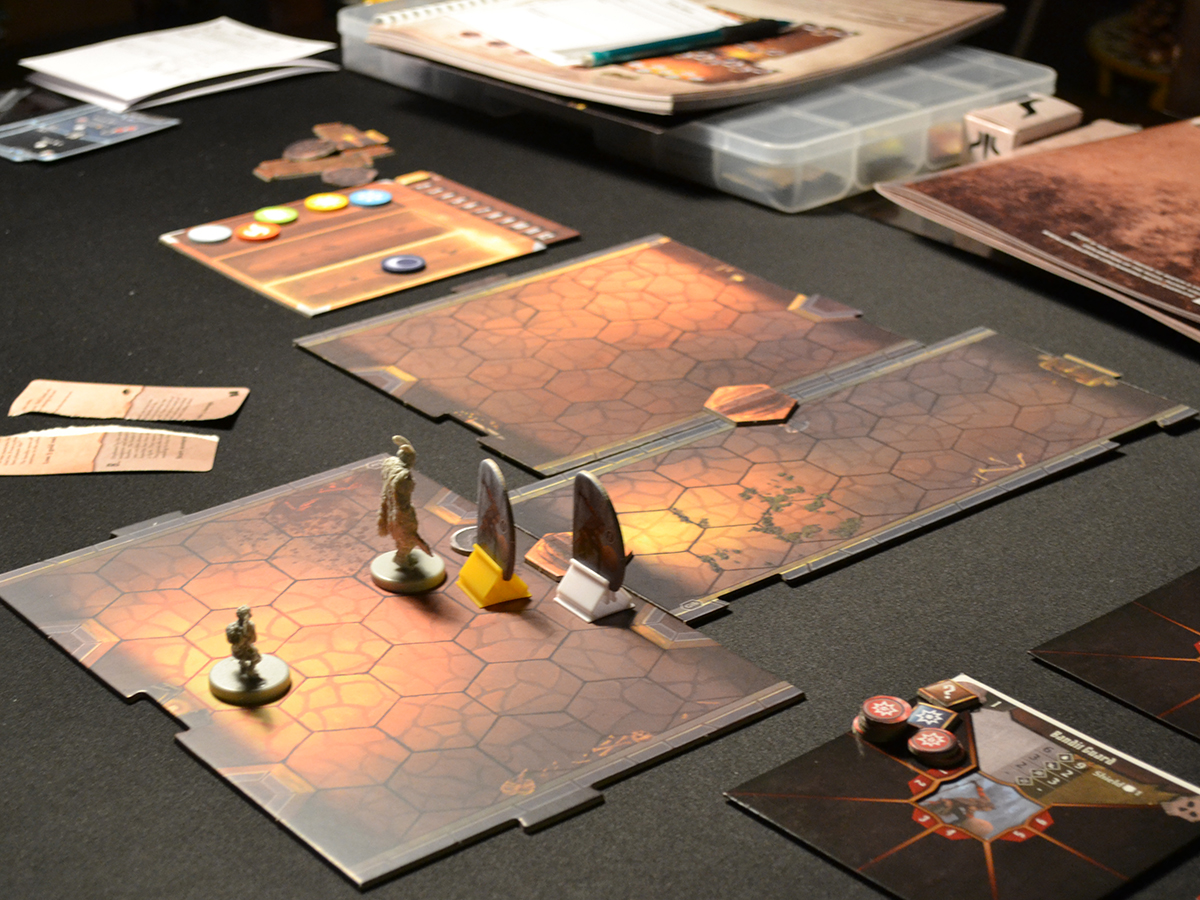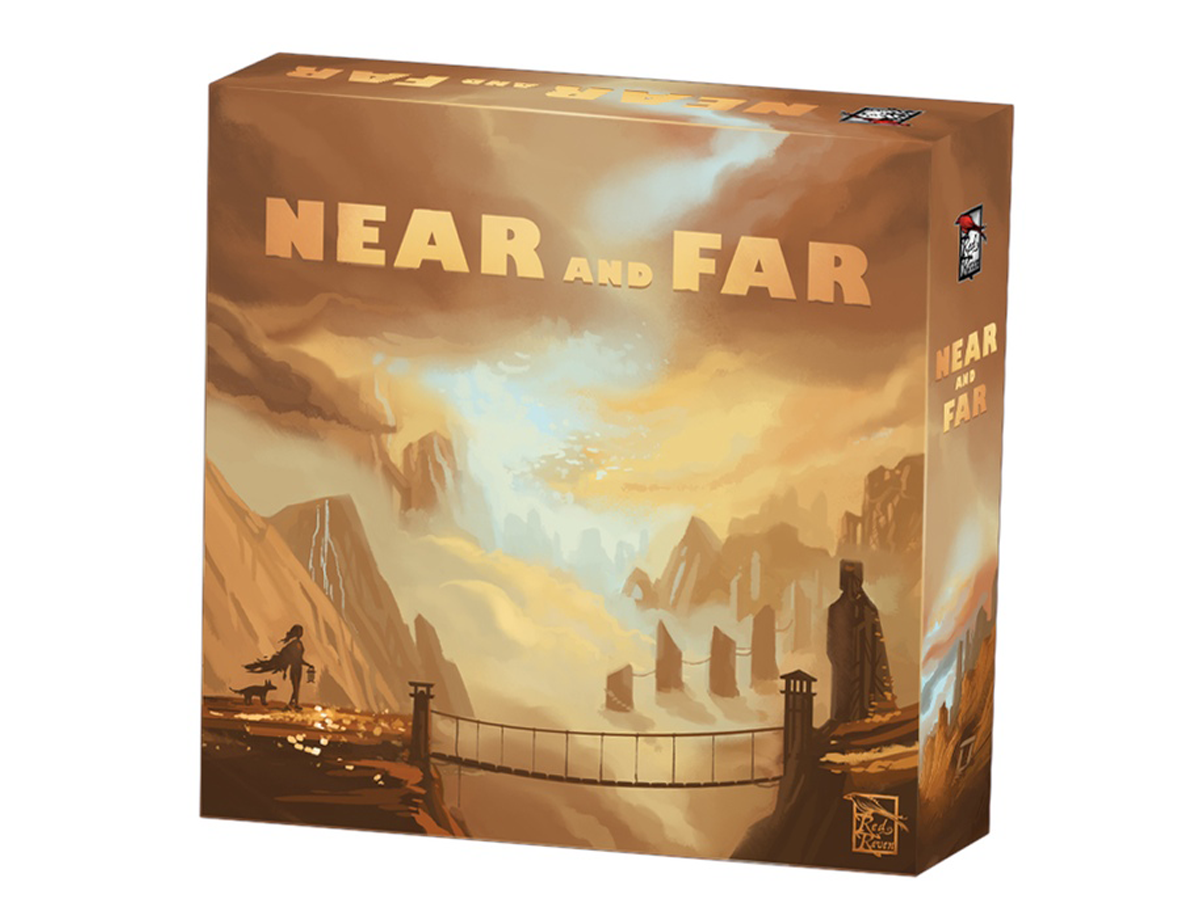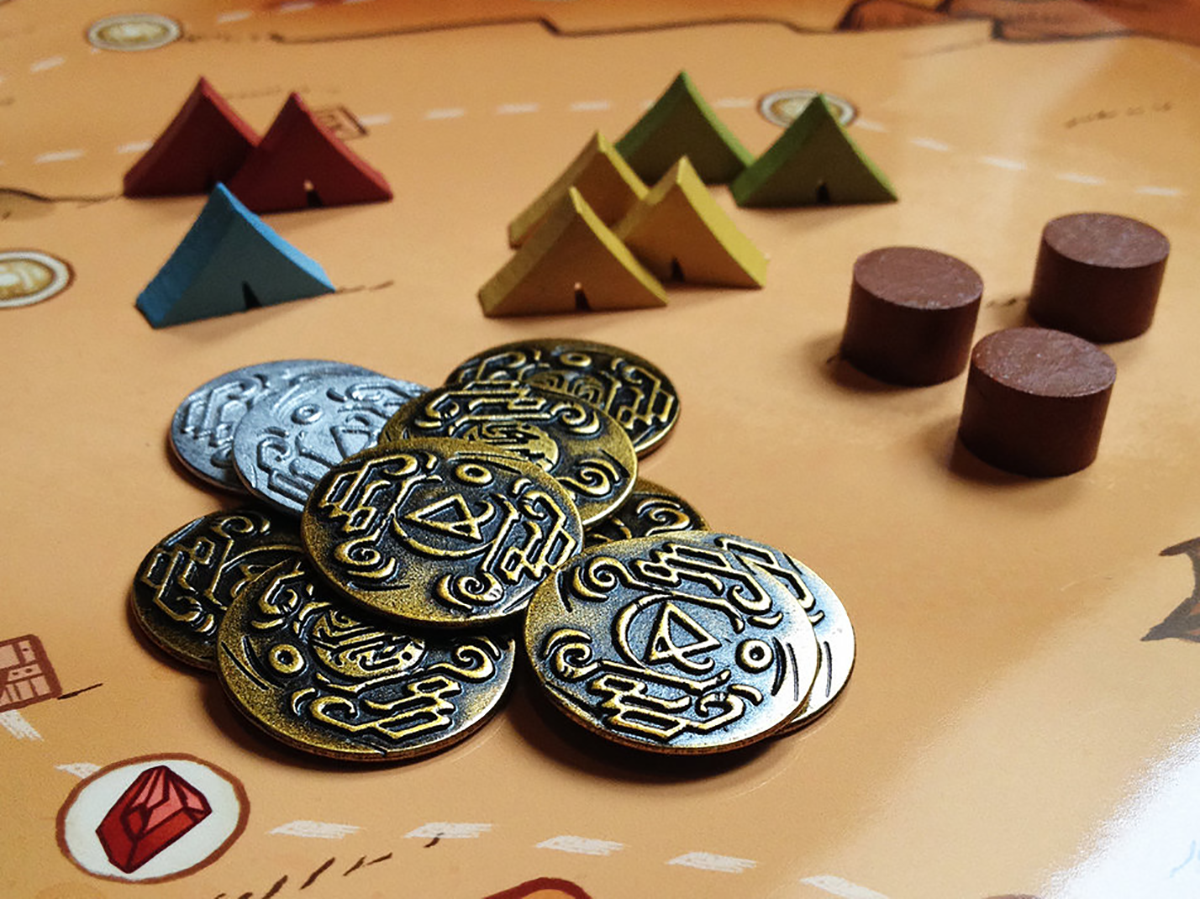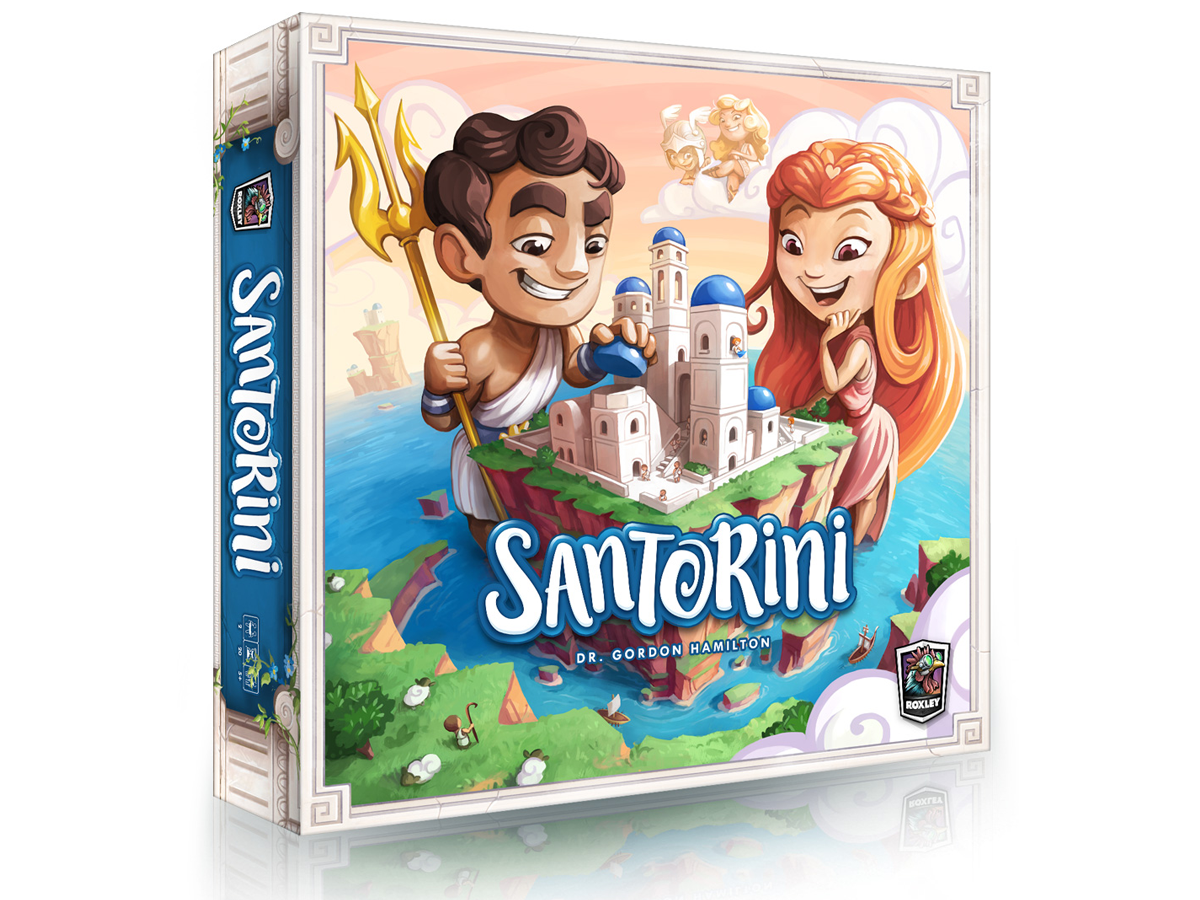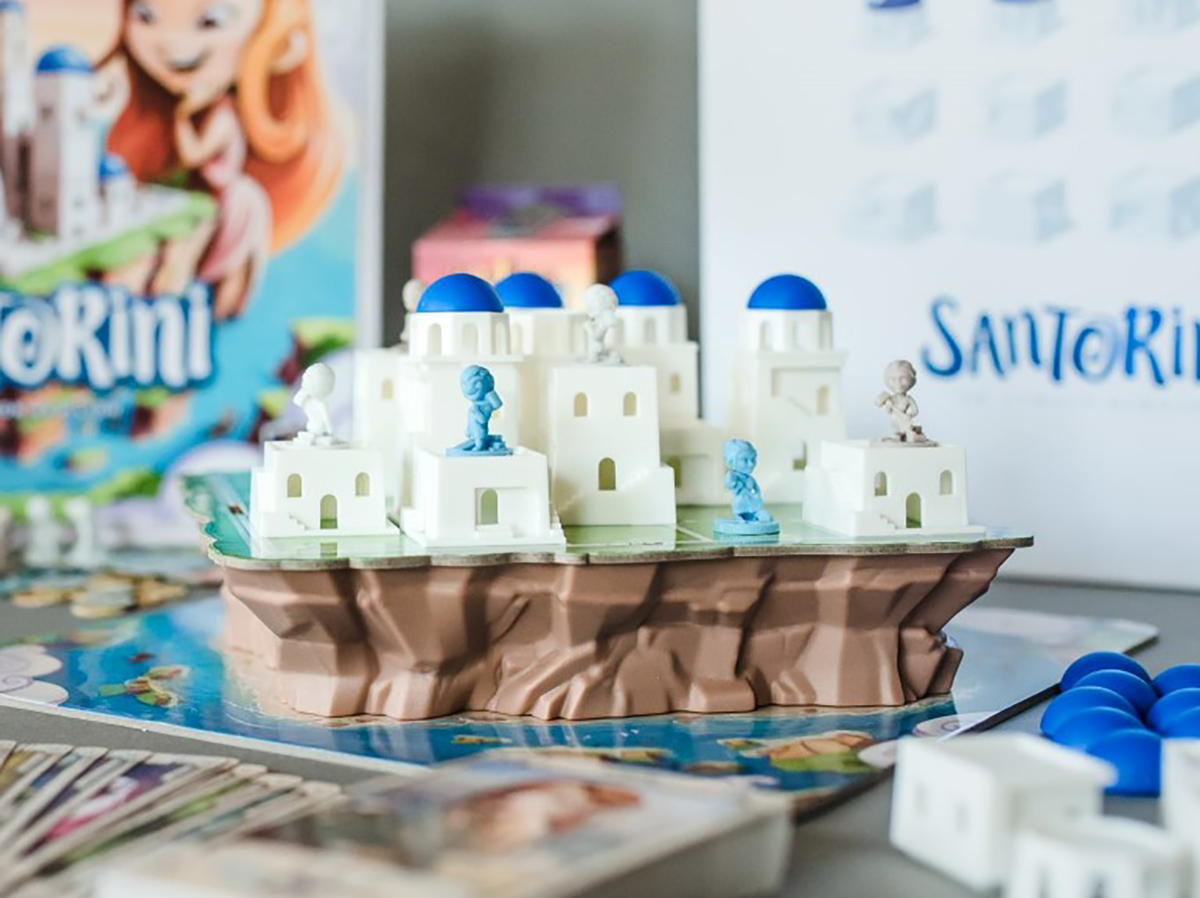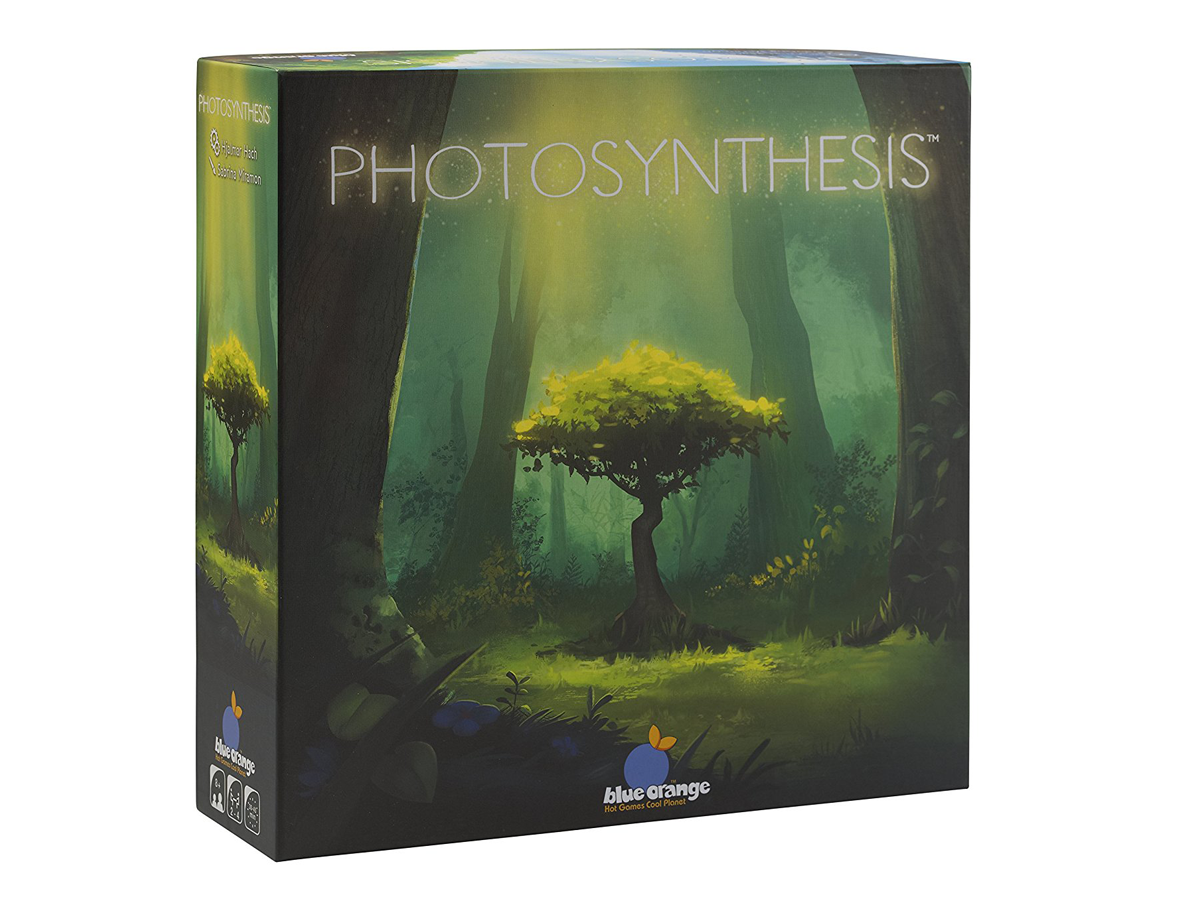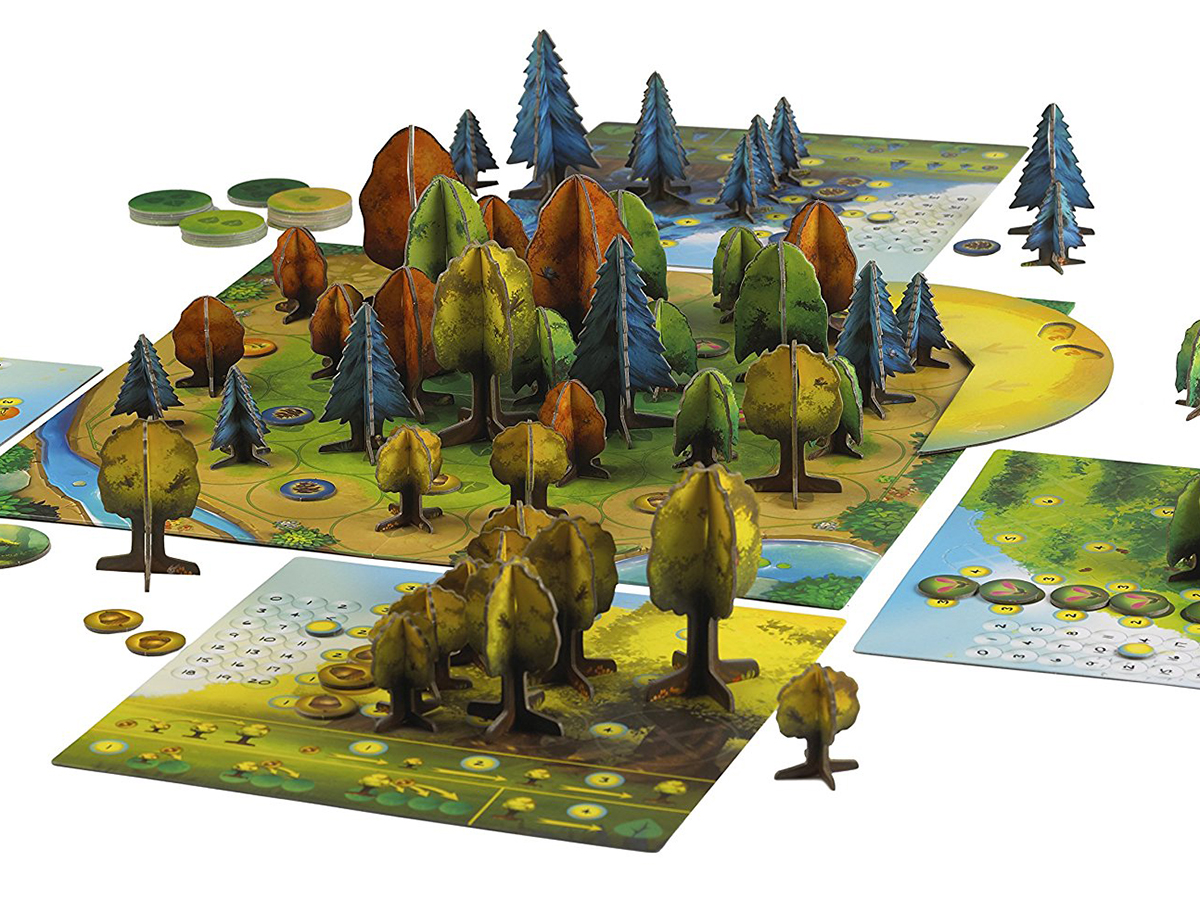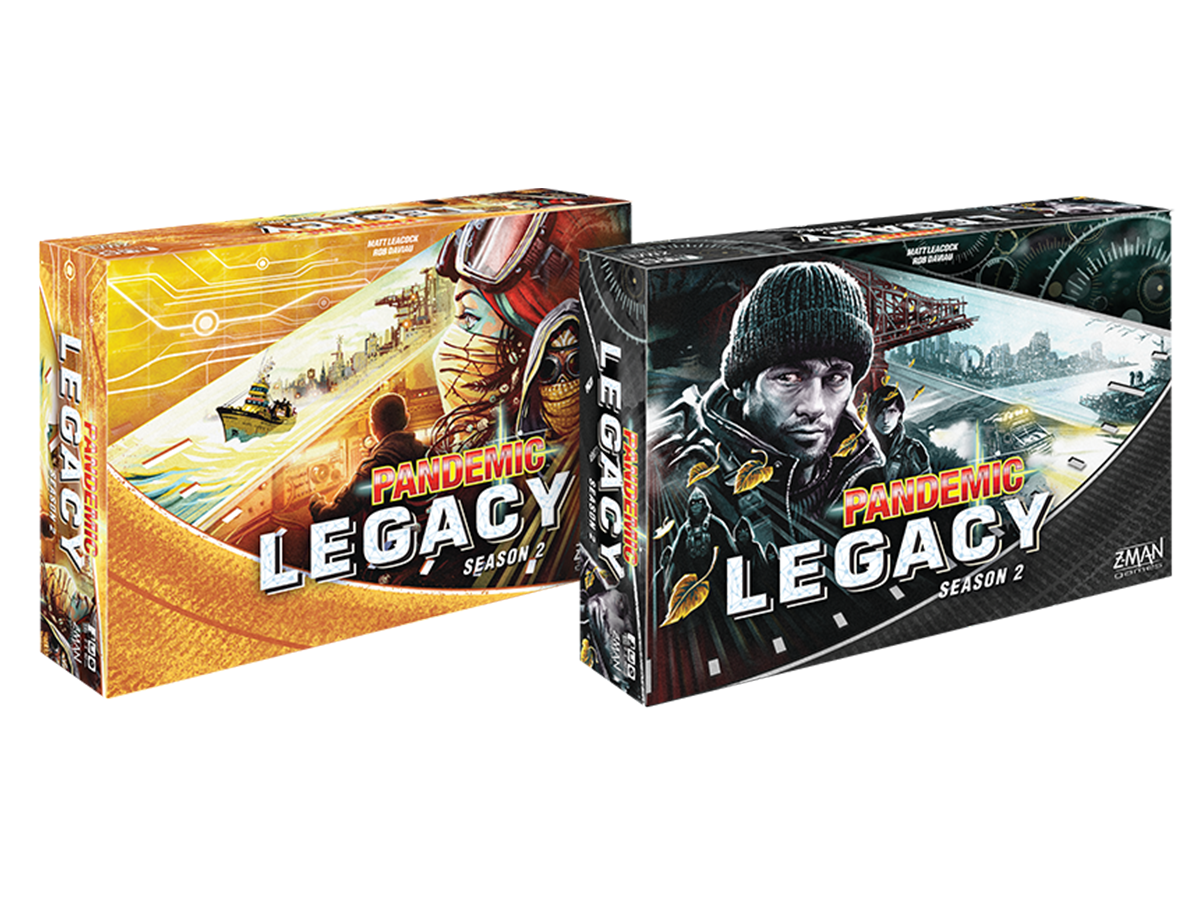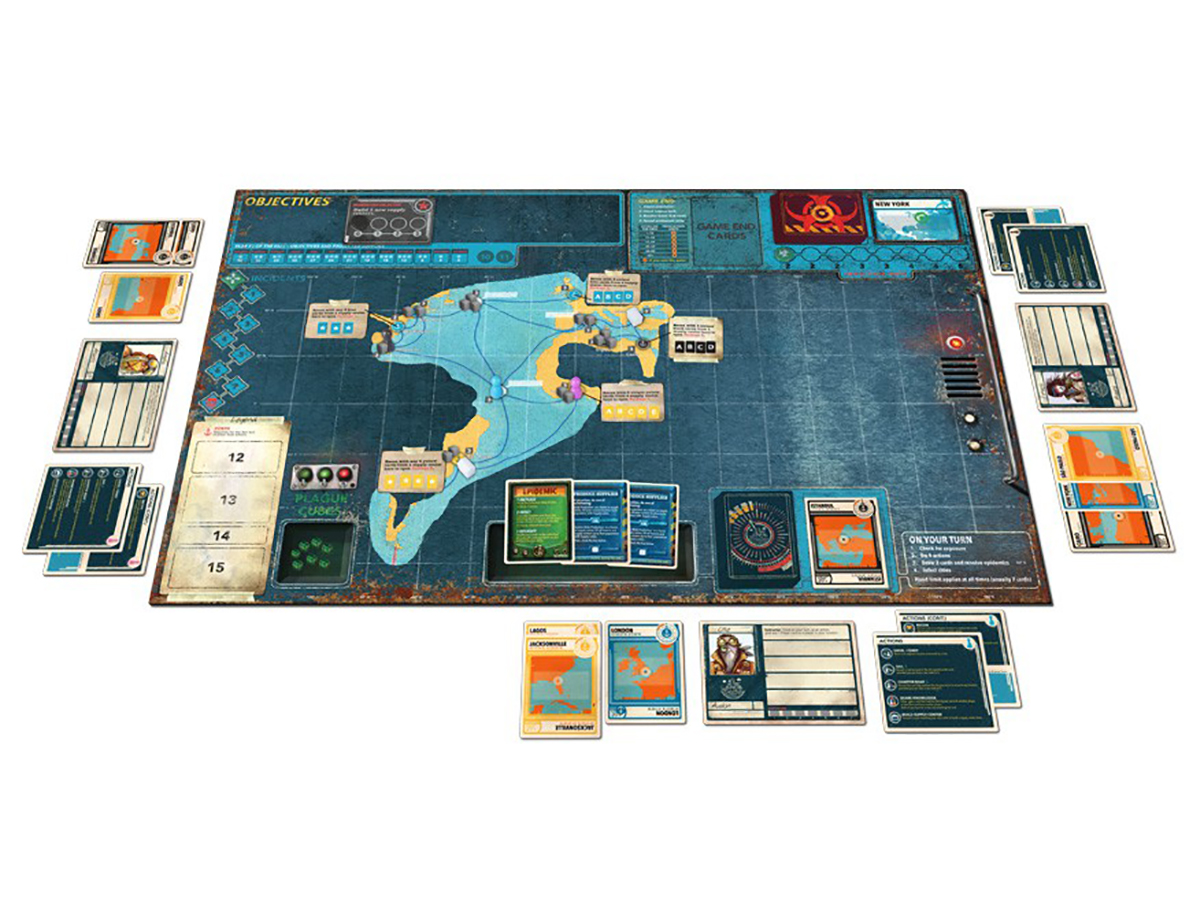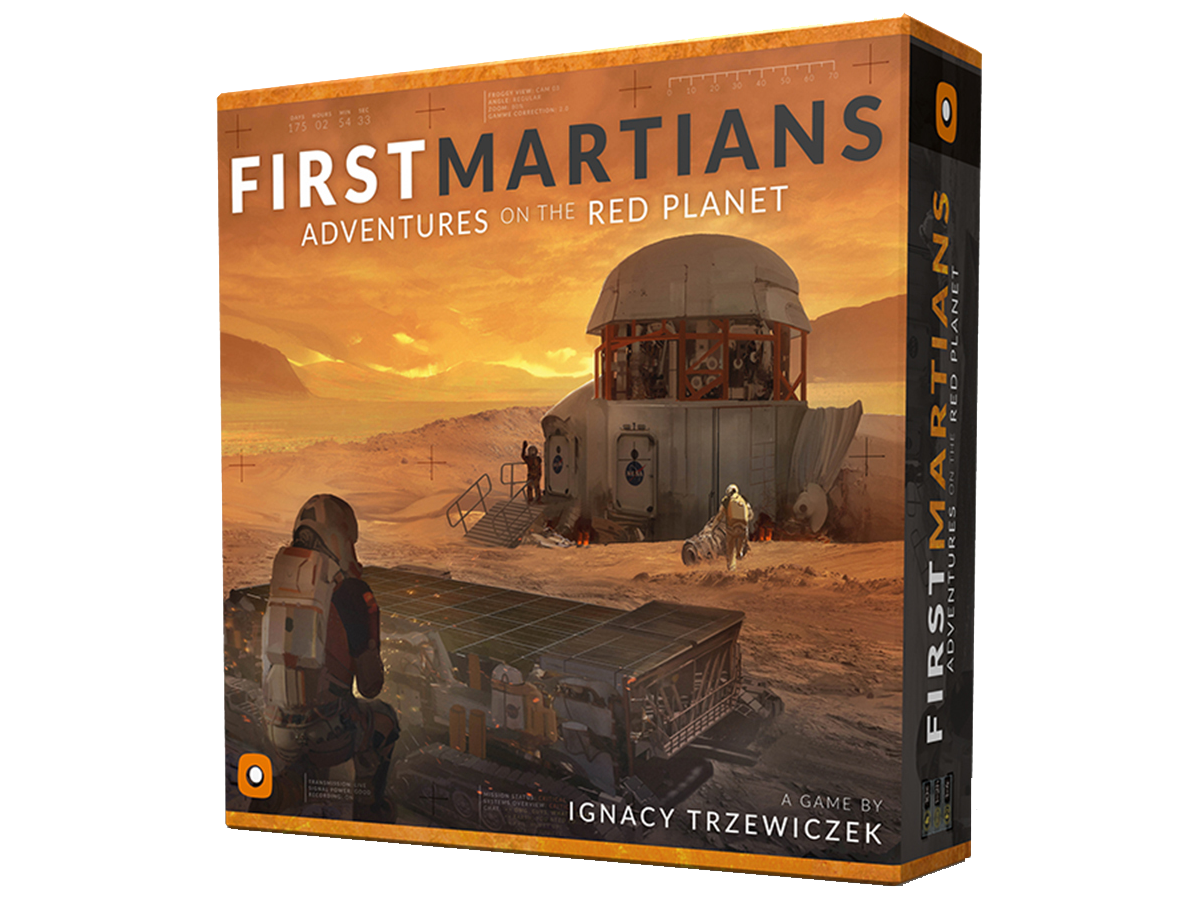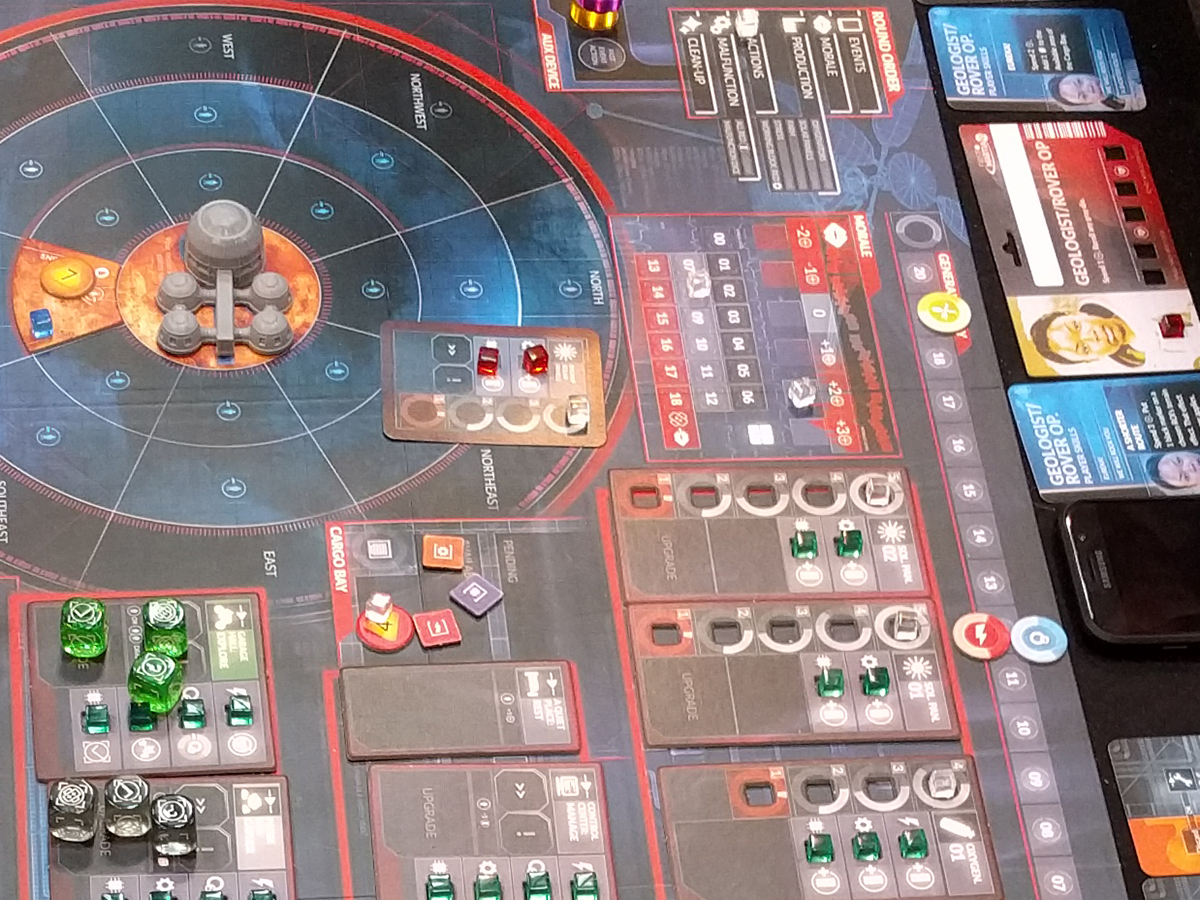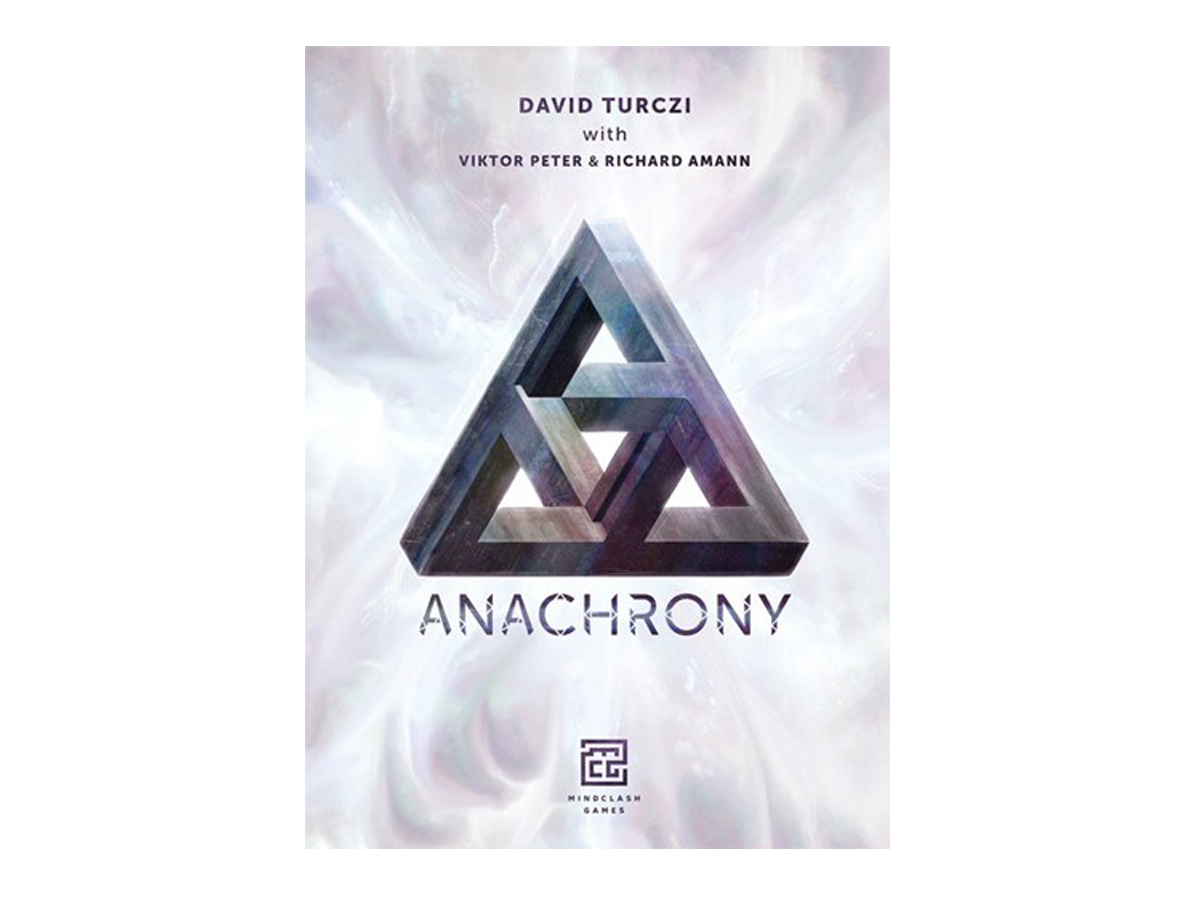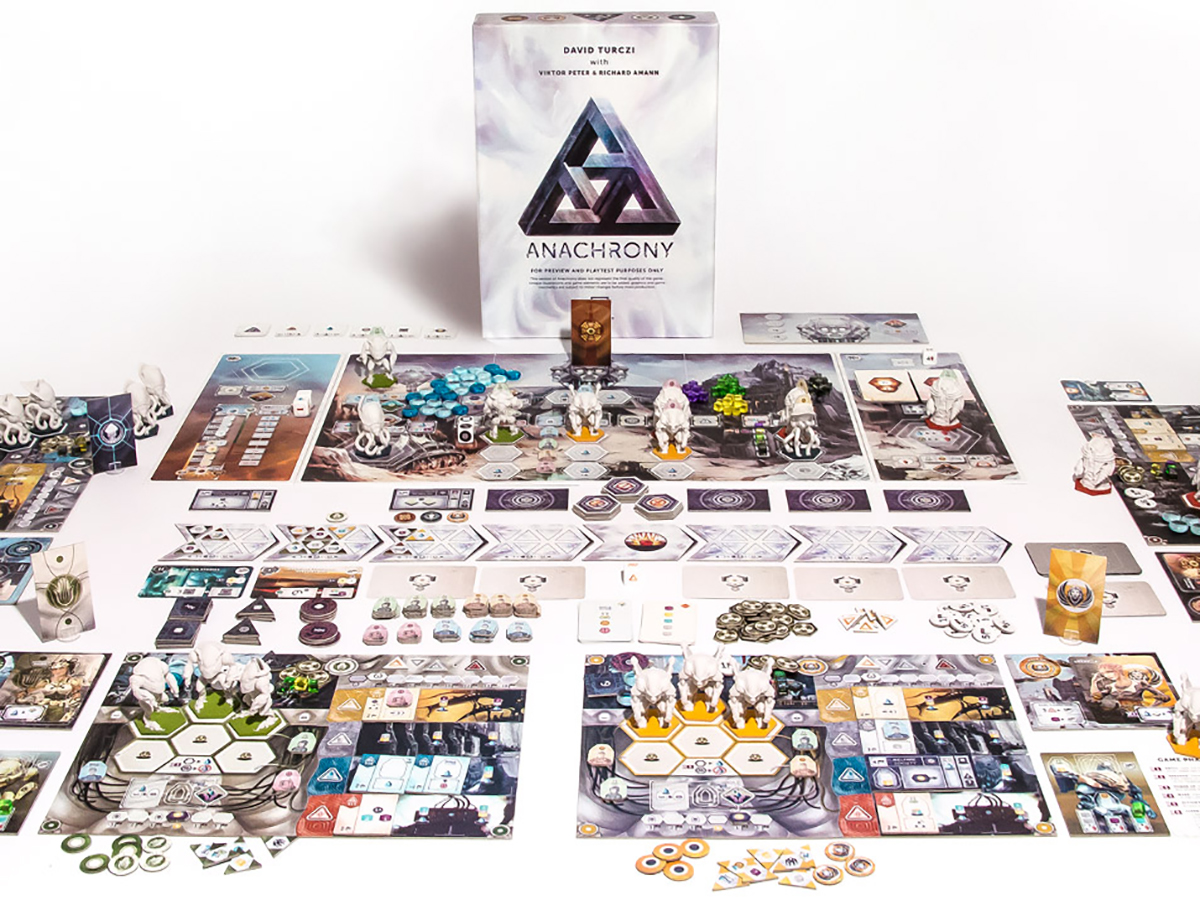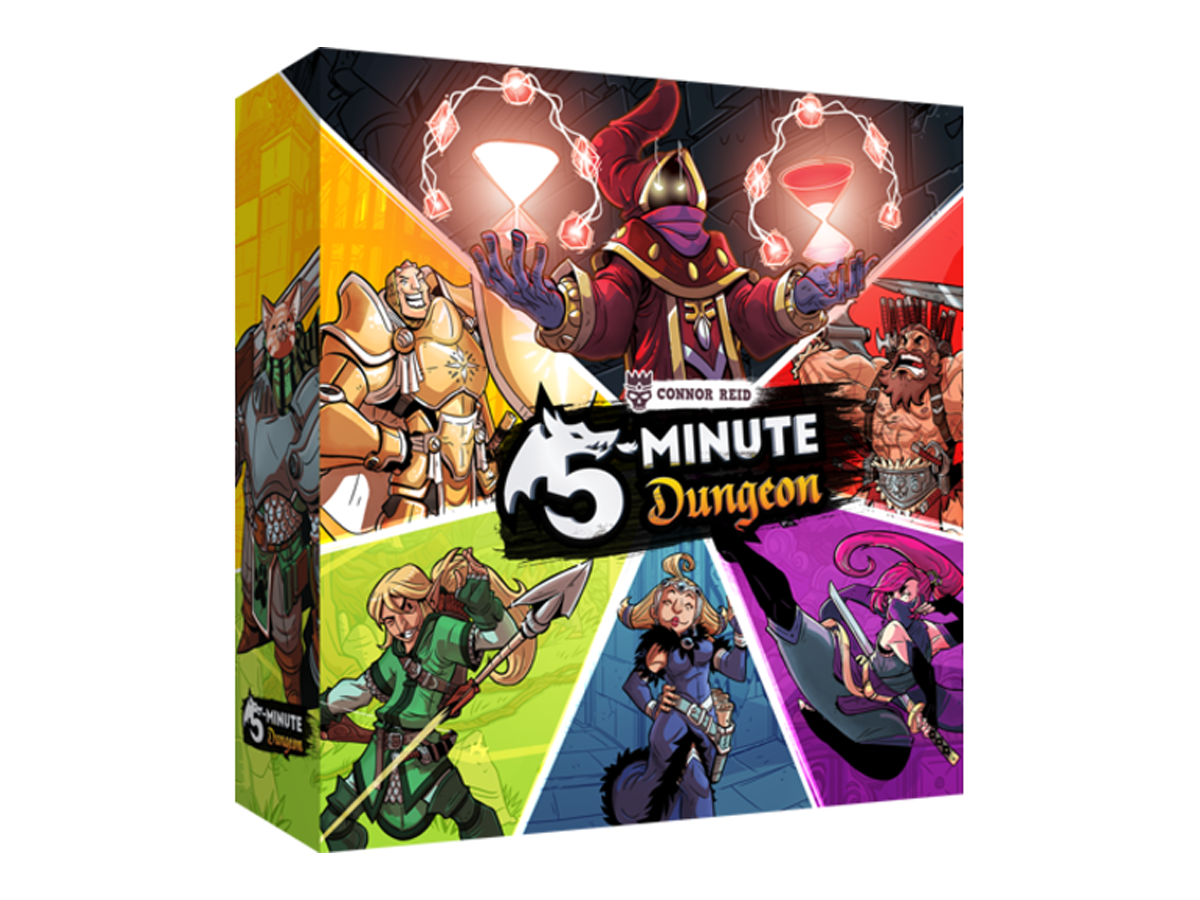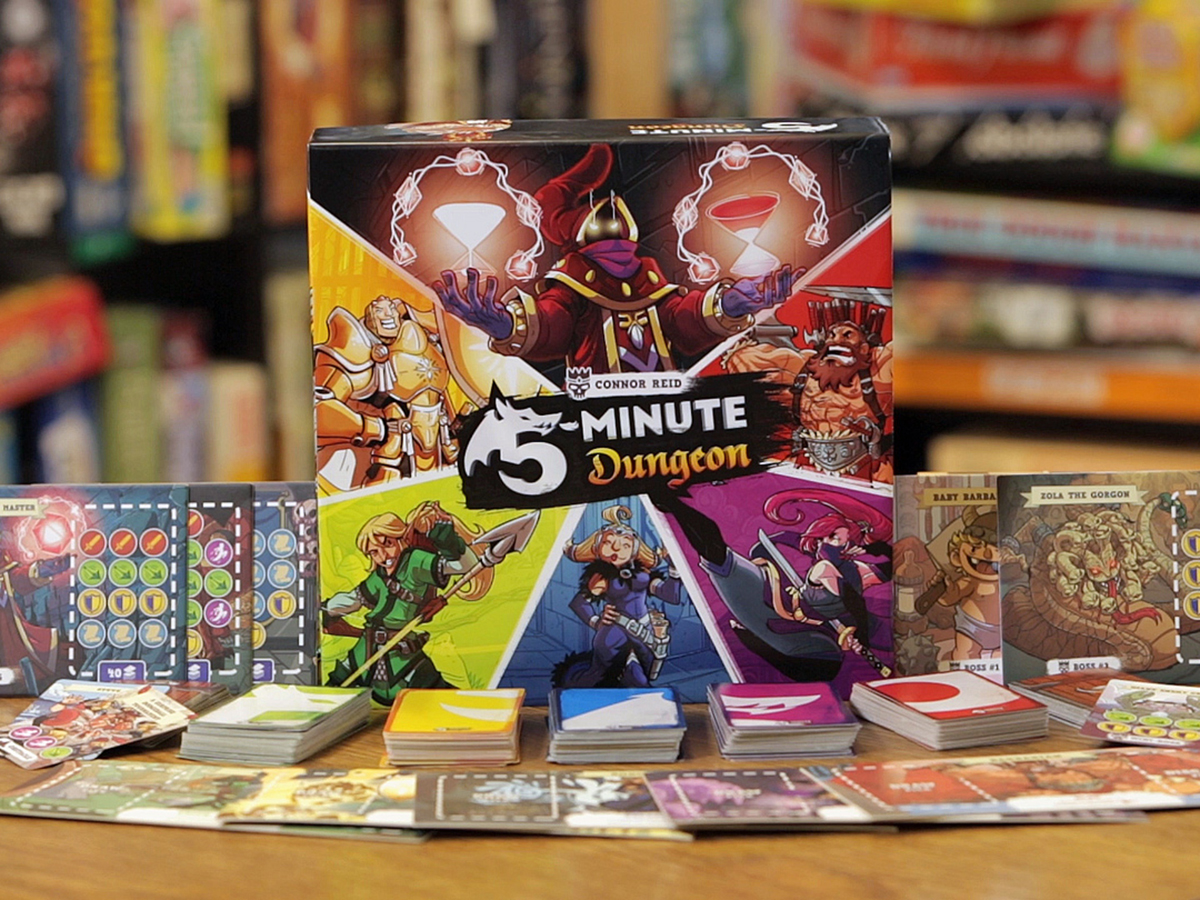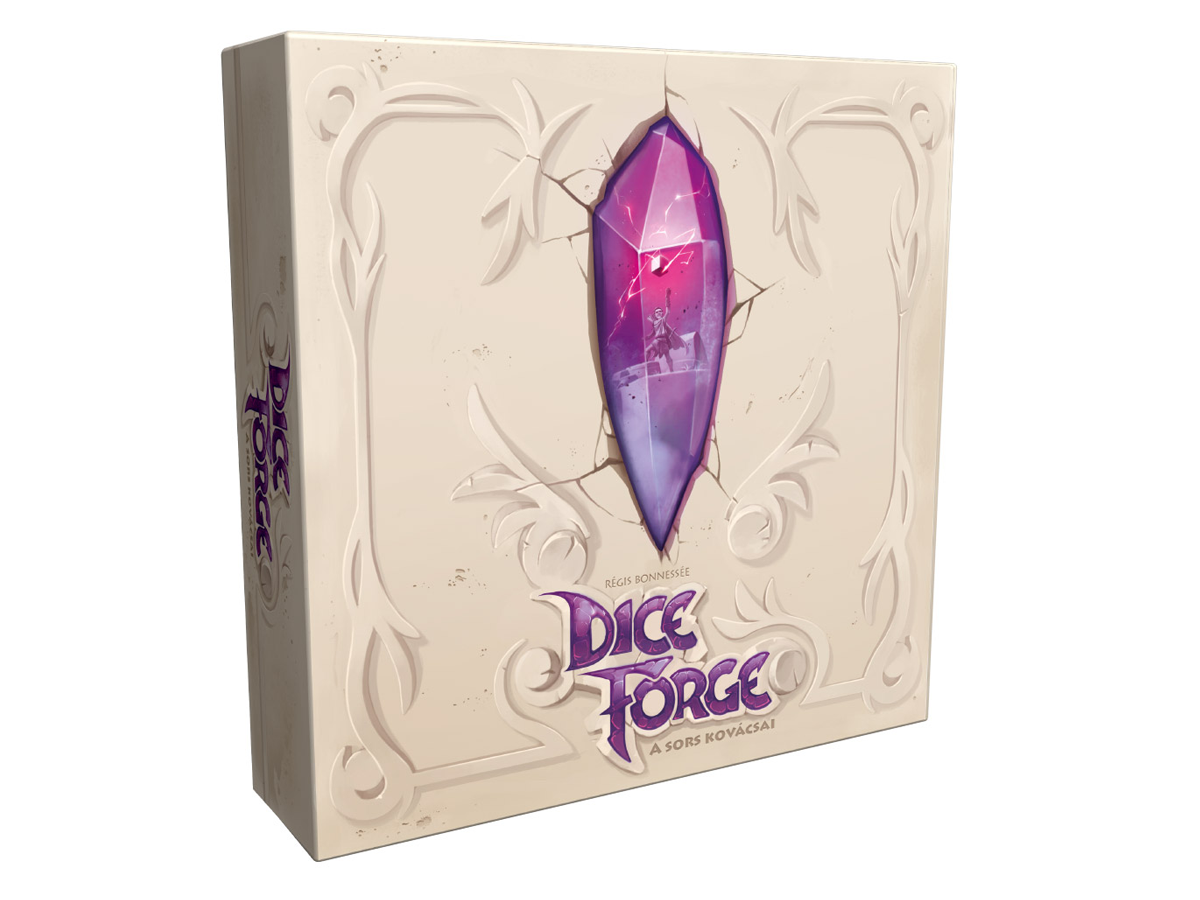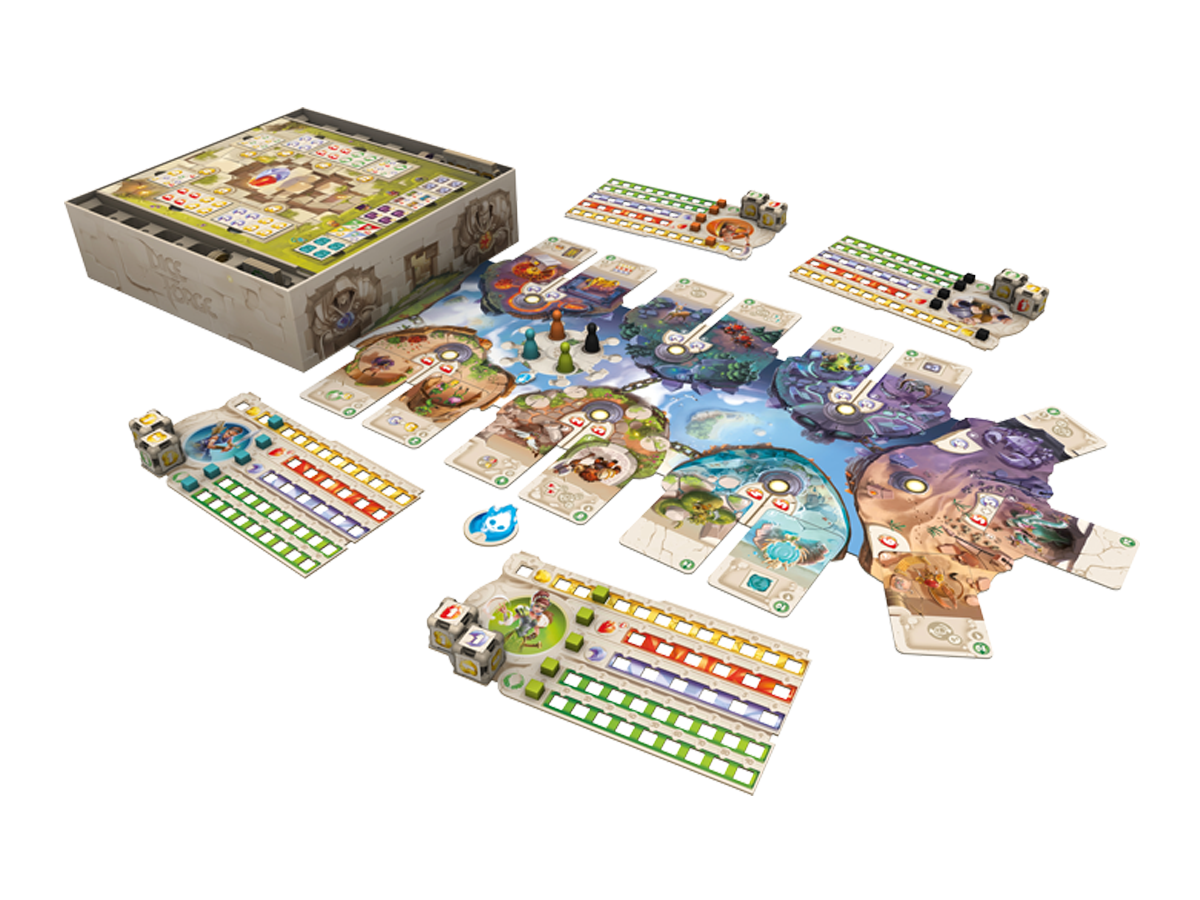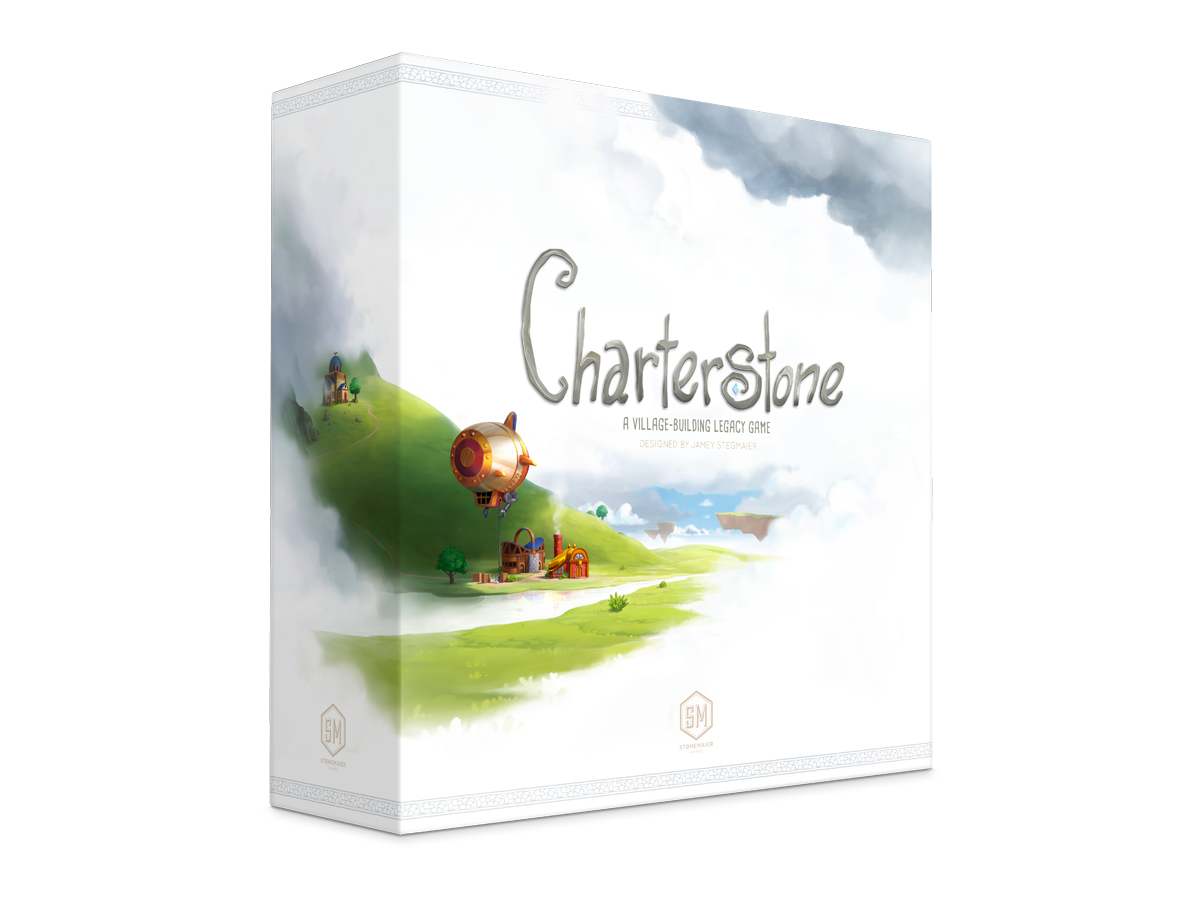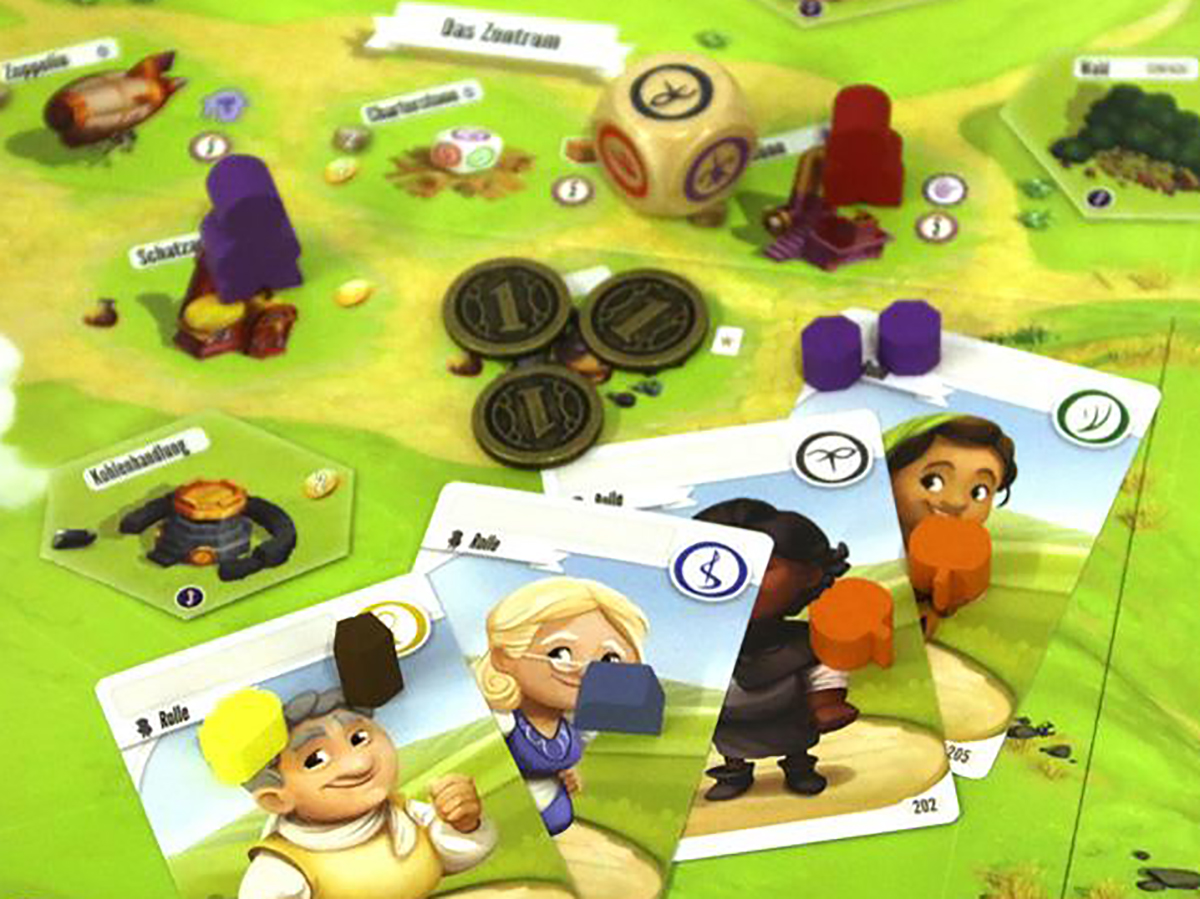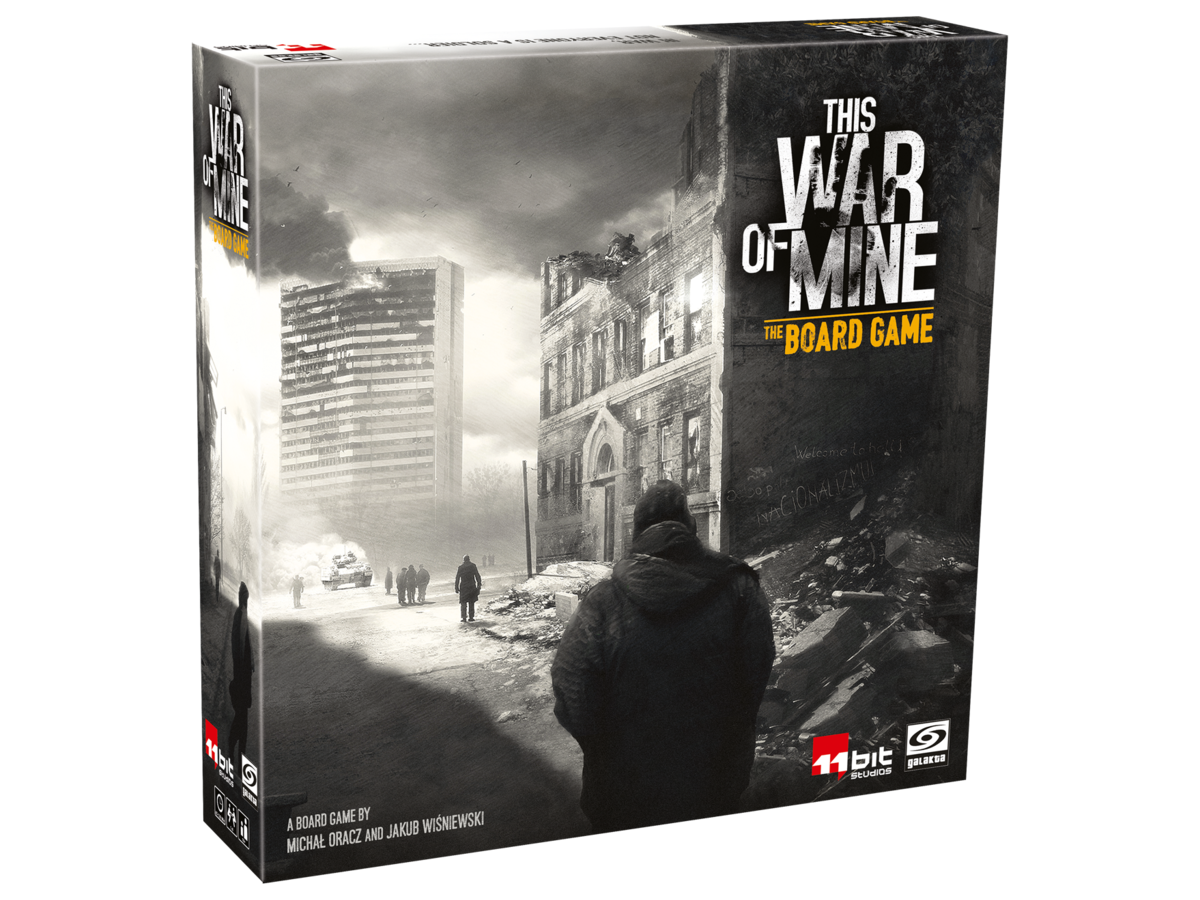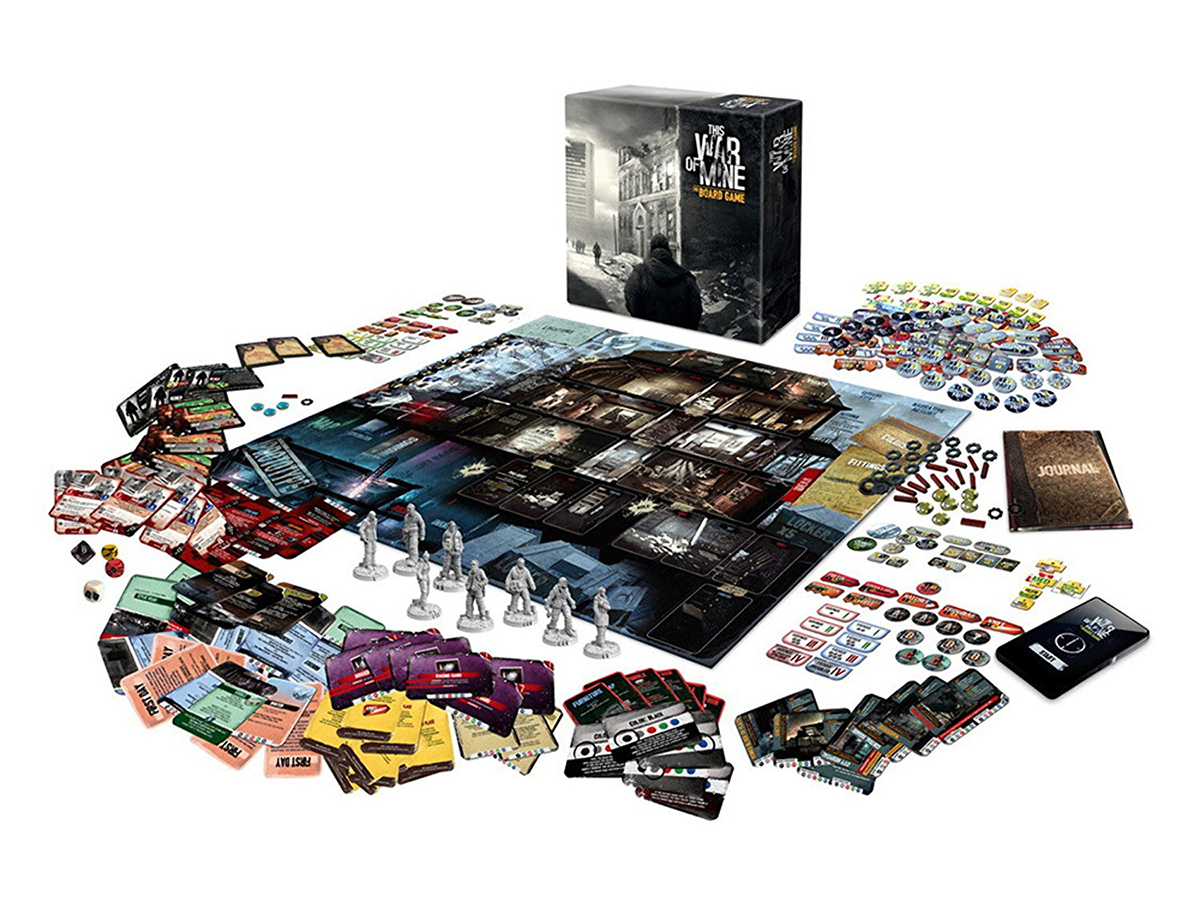Board masters: the 11 best board games of 2017
Behold tabletop gaming's biggest treats of the year...
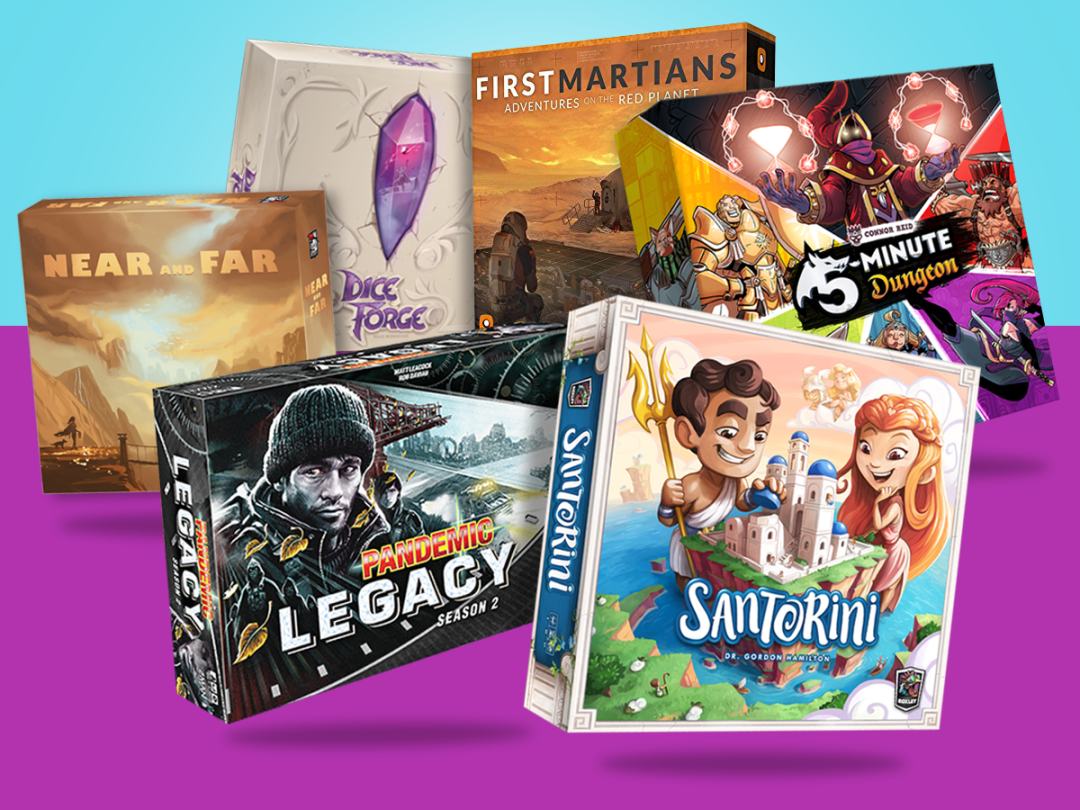
If you thought 2016 was a vintage year for board games, then this year has lifted the tabletop to new heights.
While many of our favourites have been forward-looking innovators, the biggest influence on 2017 tabletop gaming has actually been a title from 2011. It’s taken six years but Risk: Legacy’s inventive concepts have taken centre stage in game design.
Three of our picks pick up the legacy mechanic in which your copy physically changes as you play. You write on the board, reveal new components, tear up cards, add stickers to the rules and commit various other forms of creative vandalism. Legacy is great because it makes every copy unique and personal.
But it’s not the only cool idea showcased on our list. Read on and find out how mobile apps, printed books, time travel and much else besides are influencing modern gaming.
Gloomhaven – Best for…dedicated dungeon delvers (£114)
Big in every sense of the word, Gloomhaven was the biggest critical hit of the year.
It pushes the legacy concept to a logical extreme in re-creating a fantasy adventure. You and your fellow players co-operate to explore the world, cleanse dungeons and experience a branching narrative.
The neatest touch is that, as a legacy game, each world and story that unfolds over many sessions of play becomes unique to your group. Within the meta game is the real treasure: tactical combat encounters based on the non-random mechanics of European strategy games.
Between quality design and quality writing, Gloomhaven has it all if you can afford the time and expense.
Near and Far – Best for…excitable explorers (£56)
Near and Far is, in some ways, a more approachable version of Gloomhaven.
On the surface it’s a narrative-heavy game of adventure. Players recruit adventurers, fight monsters and gain treasure. A lovely touch is the two books included: an atlas of maps, which serve as boards, and a book of story paragraphs to add life and colour to quests.
Beneath this, though, is a cunning tactical game of planning, resource management and number crunching. With great components and a two-hour play time, Near and Far is a rare game that can satisfy the desire for both story and strategy at once.
Santorini – Best for…family fun (£124)
From fantasy frolics to family fun, Santorini is a simple but beguiling game of building temples and playing god.
Most of the action takes place on the board, where you move builder pawns around and have them construct or extend your temples. This accessible action hides a ruthless heart, however, as blocking in other player’s builders and buildings is key to the strategy.
So far, so abstract, but the real joy comes in everyone having a god power, letting them break the rules in an unusual way. With surprising depth and huge replayability, this is likely to remain a winner for years to come.
Photosynthesis – Best for…green gardeners (£43)
There’s a certain irony in using dead trees for the wonderful stand-up tokens in this game about growing ones. A little like Santorini, it’s all about getting high to block the opposition, only this time you’re a tree and the resource you’re blocking is light.
This is a rather more detailed game, though, as the sun rotates around a board with varying zones of rich and poor soil. Getting growth, then is a matter of planning ahead and pushing the opposition into the shade. It gets intuitive fast, though, and the evocation of its unusual theme is wonderful.
Pandemic Legacy 2 – Best for…saving the world again (£57)
The original "season" of Pandemic: Legacy is often acclaimed as the greatest board game of all time. So what can season 2 do to build on that success? Pretty much rebuild the game from basics, as it turns out.
In this Pandemic, humanity is rebuilding after the ravages of the previous title. Your job this time is to co-operate to ensure the fragile population centers keep supplied so they can fight off the plague.
It’s a bold but necessary change, making the game fresh for seasoned players. But it still retains the tense twists and turns and smart legacy modifications that made the original such a smash.
First Martians – Best for…aspiring astronauts (£50)
Another game that builds on an older title, this time 2012 co-operative survival smash Robinson Crusoe. Instead of an island to explore, though, you’ve now got a whole planet in the spherical shape of Mars.
All the great stuff from the original, the variable scenarios, the cool story-building event cards, is still there. But there’s plenty of new toys to play with too. For starters, it’s gone space-age with an app to generate encounters and save the game state if you want a break.
That, in turn, is the basis for long-term campaign play as you scratch out a life on the red planet.
Anachrony – Best for: a hit of heavy strategy (£53)
This year’s best heavy strategy comes with a new brain-burning twist. Anachrony is a game about time travel, and that means you can get a boost by borrowing resources from your future self.
Beware, though: what looks like an easy leg-up in the early game can become a perilous paradox later if you fail to pay yourself back. These bizarre strategic spirals add interest to the well-worn worker placement mechanics that run the rest of the game.
Add in a bunch of special power buildings and resource management and you’ve got enough challenging sci-fi to chew over for months.
5 Minute Dungeon – Best for: Super-speedy role-playing
5 Minute Dungeon does what is says on the box: it’s a breakneck, co-operative real time trip through a deadly dungeon. And it’s a literal five-minute trip because it’s timed via an app.
While the seconds go down and the pressure goes up, players need to grab cards from their hands to deal with threats off the top of the deck. All that’s required is to read some text and match a few symbols, but under the tyranny of that timer, easy tasks escalate to the impossible.
Finish one dungeon and a harder one awaits, the five-minute delves merging into a whole campaign in 30 minutes.
Dice Forge – Best for…clever components (£28)
While deck-building is a well established genre is it’s own right, dice-building hasn’t taken off in the same way. Dice Forge may the the game to make it roll though, thanks to a cool innovation.
Instead of merely adding and removing dice from your collection, you literally build them. Faces pop off, which you then replace by spending rolled resources. Add in a deck of cards that bring out the theme of greek myth and you’re looking at a lot of different strategies to explore.
Of course, the randomness in all those rolls helps keep things fast, simple and exciting too.
Charterstone – Best for…Sim City fans (£55)
Charterstone is a city building game with a big difference. When the game ends, everything you’ve built stays on the board, ready for the next session. It’s the last of our legacy game picks, but this one is a little different.
The linked games form a twelve game campaign, which ends with one grand, overall winner. What starts out as a simple worker placement title evolves, on the way, into an incredible strategic and storytelling journey.
There are hundreds of cards in the box, many of which you won’t use. But that’s okay: a cheap recharge kit lets you start over.
This War is Mine – Best for…emotional rollercoasters (£67)
If you found the video game of surviving in a war-torn city too bleak, you might find it better with the support of some friends. That’s what you get here in this dense, tense and emotionally fraught co-operative tabletop take on the digital version.
Mechanically it’s all about collecting resources and spending them to survive and build your shelter. Atop the tactical questions, though, is a huge book of story paragraphs to put some narrative flesh on proceedings.
Full of compelling characters and moral conundrums, it’s as much about drama as it is about tactics.
